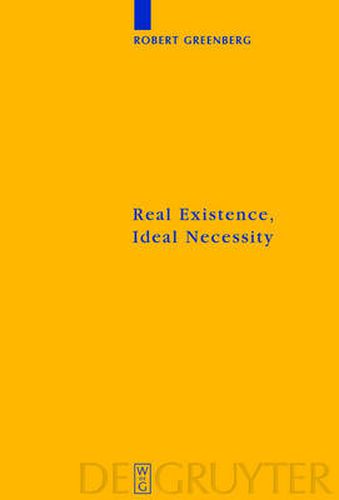Readings Newsletter
Become a Readings Member to make your shopping experience even easier.
Sign in or sign up for free!
You’re not far away from qualifying for FREE standard shipping within Australia
You’ve qualified for FREE standard shipping within Australia
The cart is loading…






This title is printed to order. This book may have been self-published. If so, we cannot guarantee the quality of the content. In the main most books will have gone through the editing process however some may not. We therefore suggest that you be aware of this before ordering this book. If in doubt check either the author or publisher’s details as we are unable to accept any returns unless they are faulty. Please contact us if you have any questions.
Analytic philosophy has leveled many challenges to Kant’s ascription of necessary properties and relations to objects in his Critique of Pure Reason. Some of these challenges can be answered, it is argued here, largely in terms of techniques belonging to analytic philosophy itself, in particular, to its philosophy of language. This Kantian response is the primary objective of this book. It takes the form of a compromise between the real existence of the objects that we can intuit and that get our knowledge started - dubbed initiators - and the ideality of the necessary properties and relations that Kant ascribes to our sensible representations of initiators, which he entitles appearances. Whereas the real existence of initiators is independent of us and our senses, the necessity of these properties and relations of appearances is due to their origins in the mind.
The Kantian compromise between real existence and ideal necessity is formulated in terms of David Kaplan’s interpretation of de re necessity in his article, Quantifying In - his response to Quine’s concern that a commitment to such a necessity leads to an acceptance of an unwanted traditional Aristotelian essentialism.
In addition, the book first abstracts and then departs from its interpretation of Kant to provide a realistic account of the relation between existence and de re necessity.
$9.00 standard shipping within Australia
FREE standard shipping within Australia for orders over $100.00
Express & International shipping calculated at checkout
This title is printed to order. This book may have been self-published. If so, we cannot guarantee the quality of the content. In the main most books will have gone through the editing process however some may not. We therefore suggest that you be aware of this before ordering this book. If in doubt check either the author or publisher’s details as we are unable to accept any returns unless they are faulty. Please contact us if you have any questions.
Analytic philosophy has leveled many challenges to Kant’s ascription of necessary properties and relations to objects in his Critique of Pure Reason. Some of these challenges can be answered, it is argued here, largely in terms of techniques belonging to analytic philosophy itself, in particular, to its philosophy of language. This Kantian response is the primary objective of this book. It takes the form of a compromise between the real existence of the objects that we can intuit and that get our knowledge started - dubbed initiators - and the ideality of the necessary properties and relations that Kant ascribes to our sensible representations of initiators, which he entitles appearances. Whereas the real existence of initiators is independent of us and our senses, the necessity of these properties and relations of appearances is due to their origins in the mind.
The Kantian compromise between real existence and ideal necessity is formulated in terms of David Kaplan’s interpretation of de re necessity in his article, Quantifying In - his response to Quine’s concern that a commitment to such a necessity leads to an acceptance of an unwanted traditional Aristotelian essentialism.
In addition, the book first abstracts and then departs from its interpretation of Kant to provide a realistic account of the relation between existence and de re necessity.